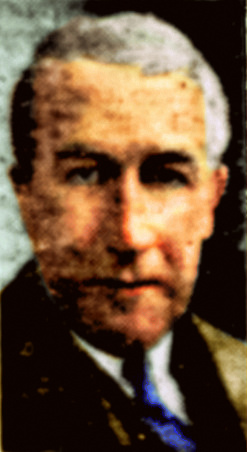
Roving Reporter
By Ernie Pyle
Paris, France – (by wireless)
This is the last of these columns from Europe. By the time you read this, the old man will be on his way back to America. After that will come a long, long rest. And after the rest – well, you never can tell.
Undoubtedly this seems to you to be a funny time for a fellow to be quitting the war. It is a funny time. But I’m not leaving because of a whim, or even especially because I’m homesick.
I’m leaving for one reason only – because I have just got to stop. “I’ve had it,” as they say in the Army. I have had all I can take for a while.
I’ve been 29 months overseas since this war started; have written around 700,000 words about it; have totaled nearly a year in the frontlines.
I do hate terribly to leave right now, but I have given out. I’ve been immersed in it too long. My spirit is wobbly and my mind is confused. The hurt has finally become too great.
All of a sudden it seemed to me that if I heard one more shot or saw one more dead man, I would go off my nut. And if I had to write one more column I’d collapse. So, I’m on my way.
It may be that a few months of peace will restore some vim to my spirit, and I can go war-horsing off to the Pacific. We’ll see what a little New Mexico sunshine does along that line.
Couldn’t get around to all the branches
Even after two and a half years of war writing, there still is a lot I would like to tell. I wish right now that I could tell you about our gigantic and staggering supply system that keeps these great armies moving.
I’m sorry I haven’t been able to get around to many branches of service that so often are neglected. I would like to have written about the Transportation Corps and the airport engineers and the wire stringers and the chemical mortars and the port battalions. To all of those that I have missed, my apologies. But the Army over here is just too big to cover it all.
I know the first question everyone will ask when I get home is: “When will the war be over?”
So, I’ll answer even before you ask me, and the answer is: “I don’t know.”
We all hope and most of us think it won’t be long now. And yet there’s a possibility of it going on and on, even after we are deep in Germany. The Germans are desperate and their leaders have nothing to quit for.
Every day the war continues is another hideous blackmark against the German nation. They are beaten and yet they haven’t quit. Every life lost from here on is a life lost to no purpose.
If Germany does deliberately drag their war on and on, she will so infuriate the world by her inhuman bullheadedness that she is apt to be committing national suicide.
Germans show their real cruelty
In our other campaigns we felt we were fighting, on the whole, a pretty good people. But we don’t feel that way now. A change has occurred. On the Western Front, the Germans have shown their real cruelty of mind. We didn’t used to hate them, but we do now.
The outstanding figure on this Western Front is Lt. Gen. Omar Nelson Bradley. He is so modest and sincere that he probably will not get his proper credit, except in military textbooks.
But he has proved himself a great general in every sense of the word. And as a human being, he is just as great. Having him in command has been a blessed good fortune for America.
I cannot help but feel bad about leaving. Even hating the whole business as much as I do, you come to be a part of it. And you leave some of yourself here when you depart. Being with the American soldier has been a rich experience.
To the thousands of them that I know personally and the other hundreds of thousands for who I have had the humble privilege of being a sort of mouthpiece, this then is to say goodbye – and good luck.


